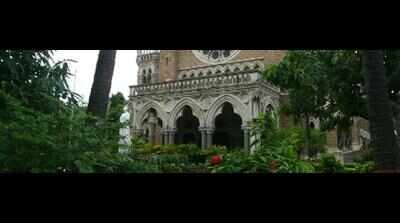- News
- City News
- mumbai News
- BCom content in MCom syllabi, univ’s curricula revised hastily
Trending
This story is from September 22, 2016
BCom content in MCom syllabi, univ’s curricula revised hastily
Mumbai University’s eclectic commerce programme has been devalued. Its depreciation follows a “hurried” redesign job, which experts opined is nothing more than a hotchpotch of content picked from first and second year BCom.

MUMBAI: Mumbai University’s eclectic commerce programme has been devalued. Its depreciation follows a “hurried” redesign job, which experts opined is nothing more than a hotchpotch of content picked from first and second year BCom.
In case of business economics, the MCom part I syllabus repeats almost 70% of the syllabus of FYBCom and SYBCom, with very little addition at the postgraduate level, say experts.Moreover, in physics and maths, the revision of syllabi is “superficial” and one topic or paper of one semester has been merely moved to another.
“Contrary to the purpose, spirit and practice of framing syllabi, the ad hoc boards of studies (BOS) was instructed to revise syllabi within a month’s time,” said Madhu Paranjpe, general secretary, Bombay University & College Teachers’ Union (BUCTU). “The consequence of this hasty non-academic and bureaucratic approach has defeated the purpose of improvement in curriculum and led to a superficial revision of syllabus in most subjects.”
BUCTU in a letter to the chancellor stated that the vice-chancellor had constituted ad hoc BOS for every subject in May 2016 by nominating five persons of his choice on each panel. “This is in violation of the Gazette Order. Moreover, the term of members of these ad hoc boards is not defined, which is a violation of statutes. The VC also nominated persons to fill in as ad hoc deans.”
The structure of BSc courses in bio-technology and computer science were suddenly and arbitrarily changed from the 2016-17 academic year, wherein these courses got completely delinked from other science subjects like physics, chemistry, mathematics, botany and zoology. “This non-academic decision has also affected workload, causing overburdening of incumbents due to vacancies not being filled up,” said Paranjpe.
Some BOS have two teachers from other universities and others have one. The chairperson of BOS of social work is an assistant professor from the university department of sociology, bypassing senior associate professors of the subject. Sociology BOS does not have any college teacher and several boards have only one college teacher, ignoring the fact that more than 85% of students are enrolled in colleges and boards have to frame syllabi of undergraduate as well as postgraduate courses.
Moreover, several boards have one or two principals, which is again a violation of statutes as principals not only have a separate constituency in the senate, management council and academic council, but their work is primarily administrative in nature. Further, a principal cannot simultaneously be the head of an institution and the head of a department, said BUCTU president Rohini Sivabalan. “Some persons against whom inquiries were conducted have been nominated to BOS,” the letter to the governor said.
In case of business economics, the MCom part I syllabus repeats almost 70% of the syllabus of FYBCom and SYBCom, with very little addition at the postgraduate level, say experts.Moreover, in physics and maths, the revision of syllabi is “superficial” and one topic or paper of one semester has been merely moved to another.
“Contrary to the purpose, spirit and practice of framing syllabi, the ad hoc boards of studies (BOS) was instructed to revise syllabi within a month’s time,” said Madhu Paranjpe, general secretary, Bombay University & College Teachers’ Union (BUCTU). “The consequence of this hasty non-academic and bureaucratic approach has defeated the purpose of improvement in curriculum and led to a superficial revision of syllabus in most subjects.”
BUCTU in a letter to the chancellor stated that the vice-chancellor had constituted ad hoc BOS for every subject in May 2016 by nominating five persons of his choice on each panel. “This is in violation of the Gazette Order. Moreover, the term of members of these ad hoc boards is not defined, which is a violation of statutes. The VC also nominated persons to fill in as ad hoc deans.”
There are problems galore: complaints of errors in the FYBMM (mass media) syllabus have been received; under each genre, only writers, poets or novelists are listed without any specific texts. The model curricula leaves it to the teacher to decide on the actual works to be taught. “In that case, how will the university set a common paper?” asked the BUCTU members.
The structure of BSc courses in bio-technology and computer science were suddenly and arbitrarily changed from the 2016-17 academic year, wherein these courses got completely delinked from other science subjects like physics, chemistry, mathematics, botany and zoology. “This non-academic decision has also affected workload, causing overburdening of incumbents due to vacancies not being filled up,” said Paranjpe.
Some BOS have two teachers from other universities and others have one. The chairperson of BOS of social work is an assistant professor from the university department of sociology, bypassing senior associate professors of the subject. Sociology BOS does not have any college teacher and several boards have only one college teacher, ignoring the fact that more than 85% of students are enrolled in colleges and boards have to frame syllabi of undergraduate as well as postgraduate courses.
Moreover, several boards have one or two principals, which is again a violation of statutes as principals not only have a separate constituency in the senate, management council and academic council, but their work is primarily administrative in nature. Further, a principal cannot simultaneously be the head of an institution and the head of a department, said BUCTU president Rohini Sivabalan. “Some persons against whom inquiries were conducted have been nominated to BOS,” the letter to the governor said.
End of Article
FOLLOW US ON SOCIAL MEDIA










